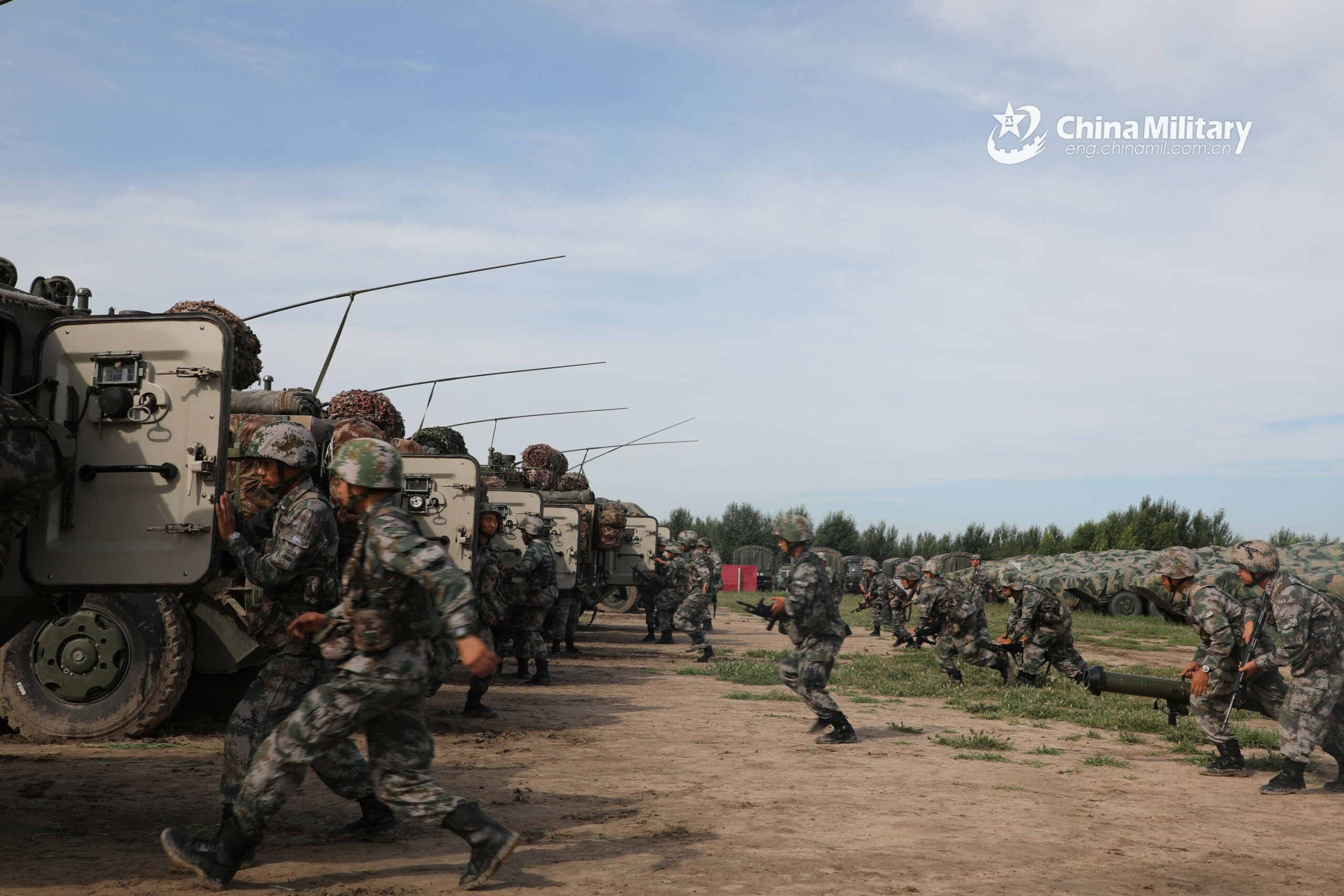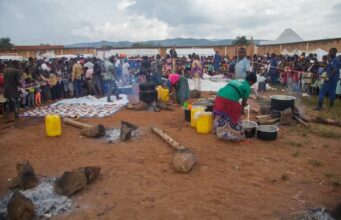NEW DELHI: What kind of an army is China’s People’s Liberation Army? It has not seen any recent combat and while there is much in the media about its technological strength and fearsome weaponry, little is known about the man behind the gun. StratNews Global’s Surya Gangadharan submitted questions to Emeritus Prof. Arthur Ding of Taiwan’s National Chengchi University, who is an acknowledged expert on the PLA. He also heads the Chinese Council of Advanced Policy, a major think tank.
SG: Sir, my first question. The PLA is an instrument of the Communist Party of China. How is that different from a national army? How does that affect its orientation, its attitude?
Prof. Ding: We call it a party army. It follows whatever comes from the party. The PLA has a domestic function, as in what happened in the 1984 crackdown when the police force could not maintain social order. So the PLA was mobilized to maintain social order. This is the fundamental difference between the PLA and any other Western national army. The PLA is also there for national defence.
SG: So does one have to be a member of the party in order to qualify to join the PLA?
Prof. Ding: Those of senior rank have to be party members. The party has to control the PLA. If they don’t follow the party, they become like warlords and lose legitimacy.
SG: Has there ever been a time when the PLA has questioned the party or moved against it? We really don’t know as China is a closed society and we don’t know what goes on inside.
Prof. Ding: High ranking PLA officials participate in many of the important decision-making processes. For instance, inside the decision-making circles, there are so called leading small groups, for instance Internal Affairs or Foreign Policy where PLA officials are present and take part. So these kinds of mechanisms also become part of the decision making elite and therefore it is very rare to challenge the party’s decisions.
SG: If someone wants to join the PLA as an officer, he has to first get clearance from the party? How does it work?
Prof. Ding: Officials from second lieutenant and above prefer to be party members. But the ordinary soldiers don’t need to be party members. So middle-level officers can participate in decision making. As for the top ranks, like the three star generals, being a party member is a must. So officers of a certain rank have to be party members, otherwise they cannot get promoted. If the officer is above the rank of captain, he has to be a party member.
SG: That’s a family junior rank. So, they are clearly ensuring that loyalty to the party runs deep in the officer corps.
Prof. Ding: Yes. Particularly in the past several years, Xi Jinping has tightened internal controls. So if the officer wants a good career in the military, he should have party membership. That is very important.
SG: Otherwise he will not rise in the hierarchy
Prof. Ding: Yeah, his promotion will be unlikely.
SG: Has there ever risen a time when the rank and file, the ordinary soldier has questioned the orders of his officers or has there ever been a mutiny in the ranks for whatever reason?
Prof. Ding: In the earlier days, the ordinary soldier never challenged his officer’s orders. But nowadays, I would say ordinary soldiers do question if not challenge their officers. In the older days, there was abuse of soldiers. These days however, if you read the PLA Daily, officers are required to take good care of their troops. So this implies that there is some kind of tension between the ordinary soldier and mid-level officers. In the older days, it was almost completely impossible for the ordinary soldier to challenge the instructions of mid-level officers.
SG: One keeps hearing that because of China’s One Child Policy for so many years, young soldiers are perhaps soft in their outlook because they’ve had a fairly privileged existence and in that sense their ability or their capacity or their inclination to fight a war, may be less firm. Is that a correct reading?
Prof Ding: Yes. When Deng Xiaoping launched his reforms, he also launched the One Child Policy. These days, I would say all soldiers come from one child families. This child has been looked after by both sides of his family. So usually, they are all privileged children and that’s why it is a little hard for them to live a harsh life. This has become a problem. There is also a lot of speculation whether the rich or well-off soldier can really fight or not. But we also don’t have anything really hard to go on this and I am unsure about this hypothesis.
SG: How would you describe the training and recruitment of the average PLA soldier? Is it very rigorous or very tough? Is it difficult to get into the PLA?
Prof. Ding: We have heard a lot of rumours and even reports that those working in the recruiting units are often bribed. So it’s perhaps not easy to join. In the 1980s or early 90s when China launched reforms, boys in the cities were reluctant to join the military because there were lots of opportunities for them to make money and have a better life. So in that period, most of the boys who joined the military were those from the countryside, from farmer’s families. Because you know, in China there is the household system. If you don’t move for three or five years, you can move and change your household from the countryside to the city. That is why during the whole of the 80s and early 90s, if not 100 per cent, at least majority of the new soldiers came from the countryside. But towards the late 1990s, for young college graduates, looking for a job became more and more difficult. The government started the National Defence Student Program and military salaries were raised. So, a lot of young men, particularly college graduates, decided to join the military. But their first priority was engineering or medical units. The idea being that when they retire from the military, they could get a good job in civilian life. So joining combat units was not a priority.
SG: How would you rate the combat capability of the Chinese soldier, given what you have just told me?
Prof. Ding: From publicly available material, I found that they do a lot of research on operational issues and they try and apply this kind of research into battle situations. There is rigorous study into combat and how it happens. However, I haven’t had the opportunity to really watch their military operations or training.
SG: Would you say that the PLA is a very modern, technologically advanced military?
Prof. Ding: In the past two or three decades, they have procured many new weapon systems and have operationally deployed them. Also, they have brought rigour to military training. But if you read the PLA Daily, during major exercises, one company from each brigade is supposed to be involved. But usually it is the same company which takes part in the exercise while the others relax. They don’t get an opportunity to train. This is because senior officers worry about casualties and injuries during training, for which they can be punished. They are trying to change this.
SG: Sir, my last question. Are you aware of any special instruction that is given in the PLA Academy about India, its military strength, its economic strength, etc? Do they study India as an adversary in PLA academies?
Prof. Ding: I have not read about this at least in the public sources. But there is no doubt that the border issue between India and China is what they define as “core interest”.
SG: Professor Arthur Ding, it was a pleasure talking to you. You’ve given us a lot of insight and a great perspective. Thank you so much, sir.
















